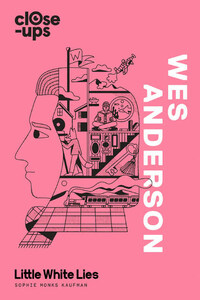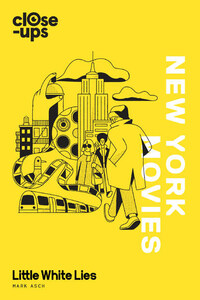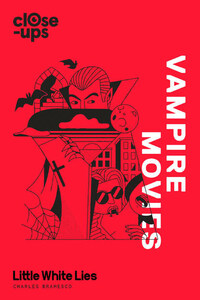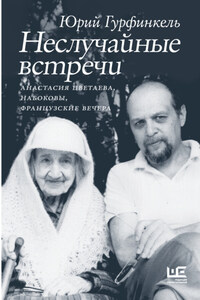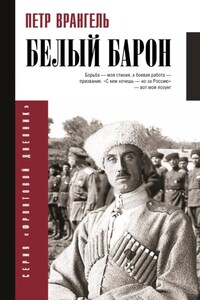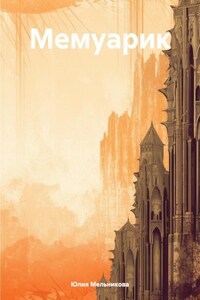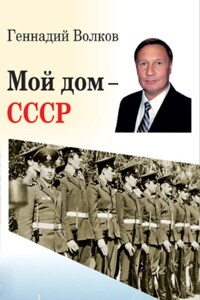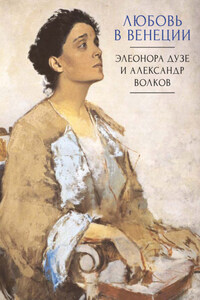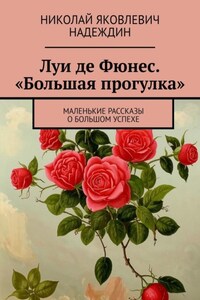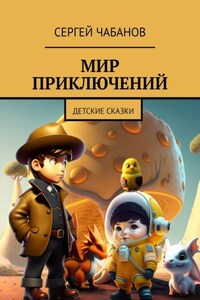Close-Ups is a series of pocket guides to the world of film from Little White Lies and William Collins. In the title you are holding, our hope is that you find a fresh, personal exploration of a particular director, actor, movement or genre. We hope that you will join our authors in their efforts to look at movies through a new lens.
David Jenkins
Editor
Little White Lies Magazine
William Collins
An imprint of HarperCollinsPublishers
1 London Bridge Street
London SE1 9GF
www.WilliamCollinsBooks.com
This eBook first published in Great Britain by William Collins in 2018
Copyright © Sophie Monks Kaufman and Little White Lies 2018
Sophie Monks Kaufman asserts the moral right to be identified as the author of this work
Series editors: David Jenkins, Tom Killingbeck, Clive Wilson
Cover illustration by Christopher DeLorenzo
Interior illustrations by Laurène Boglio
Design and layout: Oliver Stafford, Laurène Boglio, Sophie Mo
A catalogue record for this book is available from the British Library
Extract from ‘Fidelity’ by Ted Hughes taken from Birthday Letters (Faber and Faber, 1998); Extract by Arthur Goldman taken from Memoirs of a Geisha (Alfred A. Knopf, 1997); Quotation taken from the New Yorker, ‘Wes Anderson on J. D. Salinger’; https://www.newyorker.com/culture/richard-brody/wes-anderson-on-j-d-salinger
All rights reserved under International and Pan-American Copyright Conventions. By payment of the required fees, you have been granted the non-exclusive, non-transferable right to access and read the text of this e-book on-screen. No part of this text may be reproduced, transmitted, down-loaded, decompiled, reverse engineered, or stored in or introduced into any information storage and retrieval system, in any form or by any means, whether electronic or mechanical, now known or hereinafter invented, without the express written permission of HarperCollins
Source ISBN: 9780008256586
Ebook Edition © September 2018 ISBN: 9780008256593
Version: 2018-10-01
Family as the hand that feeds and bleeds you
Jack (Jason Schwartzman) aims a can of mace at his brother Francis (Owen Wilson) in the 2007 film The Darjeeling Limited. In the process he distills a number of recurring truths in the work of the Houston, Texas-born writer/director Wes Anderson: families are hotbeds of hurt; family members lie, disappoint and reject one another, often at the most devastating of times; and parents often fail to look after or even stay alive for their children. The pain of coming from a dysfunctional home is writ large across every Anderson picture. And yet, for all the drama this pain causes, the subsequent hurt is rarely terminal. With reddened eyes and harbouring a lightly comic sense of stifled justice, the family unit limps on.
Children in adults’ clothing
Unlike in happily-ever-after children’s yarns, Wes Anderson’s characters don’t get what they initially think they want. Or else they do but only briefly, before time dispatches them onwards. This sounds bleak, and would be if presented in a stark manner. However Wes’s films are the opposite of stark. He builds spectacles infused with childlike wonder, and in doing so sweetens the pill of certain death. If there is a message to be taken from all these images it is: don’t be a jaded grown-up while there’s still time on the clock. Wes almost sabotages himself by employing a childlike delivery of adult wisdom. Instead of having all the elements of cinema at the service of a single view, he has profound emotions dressed up in ornate doll’s clothing in what is almost a tonal conflict.
The recurring fact of someone coming unglued
‘I guess when I think about it, one of the things I like to dramatise, and what is sometimes funny, is someone coming unglued’, said Anderson in a 2012 interview. We watch as his characters come unglued from life’s big external mechanisms – work, the law, the Scouting movement. They come unglued from personal attachments, family connections and romantic relationships. And finally, this ‘glue’ chips away from abstract things – sanity, health and existence itself. Showing people becoming unglued is a way to show who they really are. Blending in with society, i.e. not becoming unglued, dooms a person to anonymity. WH Auden’s 1940 poem ‘The Unknown Citizen’ is a satirical tribute to a man whose only graces were his utter lack of identifying features. As Auden wrote:
Our researchers into Public Opinion are content
That he held the proper opinions for the time of year;
When there was peace, he was for peace:
when there was war, he went
After illustrating a lifetime of flying beneath the radar, Auden ends the poem with these lines:
